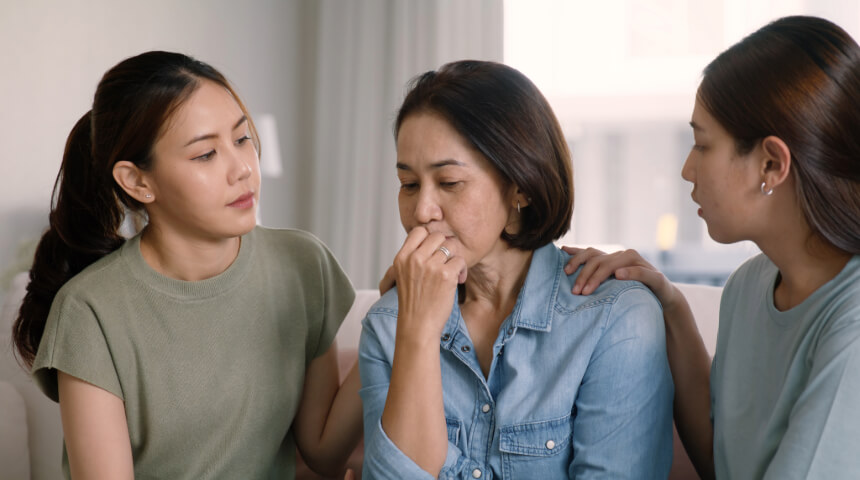This Rare Cancer Can Develop After Breast Implants — Here’s What You Should Know
Board certified plastic surgeons performed 290,000 breast augmentation procedures in 2016. We also performed more than 90,000 reconstructive implant procedures. For many women who get implants, the process is smooth and there aren’t serious or life-threatening complications after surgery.
But in a very, very small number of cases, cancer can develop after breast implants. This cancer, known as BIA-ALCL or breast implant associated anaplastic large cell lymphoma, is a rare form of non-Hodgkin's lymphoma, a type of cancer that starts in the lymphatic system, which helps the body fight disease.
The FDA has been studying BIA-ALCL for the last six years to get a better understanding of this rare disease. Thanks to its efforts, and data from breast implant manufacturers, patient registries, a growing body of medical literature and other health experts in the field, we now have more information about BIA-ALCL.
Understanding BIA-ALCL
According to the World Health Organization (WHO), BIA-ALCL is a rare T-cell lymphoma that develops after breast implants.
One in every 500,000 women will be diagnosed with anaplastic large cell lymphoma and three in 100,000,000 women a year will be diagnosed with implant associated anaplastic large cell lymphoma.
The FDA also has been able to gather some information about the prevalence of BIA-ALCL from medical device reports, which the agency uses to get data on adverse events caused by certain medical products. It found 359 medical device reports of BIA-ALCL, 203 of which involved textured implants and 28 that involved smooth-surface implants. There were nine deaths across the 359 reports.
The distinction regarding the type of implant is important because most of the cases we’ve seen of BIA-ALCL involved textured implants. Textured implants, which can either be filled with saline or silicone gel, have an outer silicone rubber shell and are usually rough, with a texture similar to sandpaper. Smooth implants can be filled with the same material and have the same outer shell, but they are typically shinier and more slippery than textured implants.
It’s not entirely clear why textured implants are more closely associated with the development of BIA-ALCL, but it may have something to do with the material manufacturers use to create the specific texture on the surface of the implant or the inflammation that occurs with the surface.
BIA-ALCL Risks & Symptoms
BIA-ALCL often occurs many years after a woman has gotten breast implants. One of the telltale symptoms of this disease is ongoing pain or swelling near or around the implant. Fluid also builds up in this area, and patients may feel a mass or see a scar (capsular contracture) around their implant. Known cases of BIA-ALCL are lymphoma found in the capsule of the scar tissue. These cases usually are diagnosed after a woman undergoes an implant revision procedure because of persistent fluid buildup around her implant usually many years after the initial procedure.
If you have breast implants and notice any of these symptoms, schedule an appointment with your doctor right away to rule out whether or not it may be BIA-ALCL. Women who are considering breast implants also should talk to their doctor about the difference between smooth and textured implants and the risk associated with each of them. Most textured implants used these days are anatomically shaped or tear dropped shaped.
If a woman is diagnosed with BIA-ALCL, we can treat it by removing the implant and surrounding scar tissue. Occasionally, we may administer other treatments such as chemotherapy or radiation, although this is rare. Patients diagnosed with BIA-ALCL usually have an excellent prognosis, especially after timely treatment.
Women with breast implants have a very, very low but increased risk of developing anaplastic large cell lymphoma compared to women without implants. Still, this form of cancer is extremely rare. If you’re concerned about your risk and plan to get implants, become as informed as you can about how these products are manufactured — especially textured implants. In some cases, patients may want to undergo the very small risk of going with a textured implant because of certain advantages this implant offers.
Check the FDA's Breast Implants website for more information and have a conversation with your doctor before you undergo surgery. If you have a question or think you may have this rare cancer, call us or schedule an appointment at the Orlando Aesthetic and Reconstructive Surgery Institute at Orlando Health. Always consider a board certified plastic surgeon for your implant needs. We are experts in implant reconstruction and cosmetic implant augmentation and we are here to help.
Reduce Your Risk of Breast Cancer
Breast cancer is the second most common type of cancer among women in the United States. However, with early diagnosis, breast cancer has a relative survival rate of better than 90 percent. Monthly self breast exams can help you be familiar with how your breasts normally look and feel.
Download a self-examination guide here










